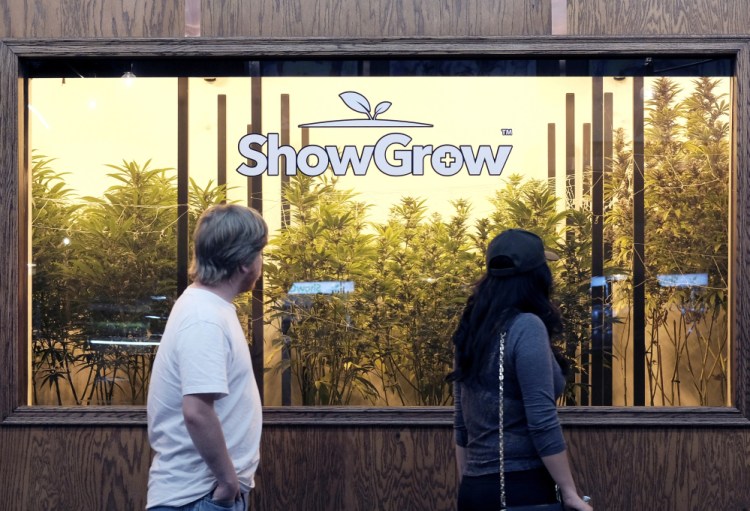WASHINGTON — The calendar says it’s April 20, or 4/20, the day for pot lovers to celebrate all things marijuana.
But some were in a more reflective mood as they went to Capitol Hill on Wednesday to share stories of how pot use had changed their lives: Wes Philip, 27, of Washington, D.C., said he had lost his federal job as a program analyst after failing a drug test; Melanie Matthews, 30, a hotel manager from Columbia, Maryland, said she got handcuffed to a bench and spent $2,500 on a lawyer after getting stopped by a police officer in her neighborhood; and Adrian Matthews, 32, of Baltimore, recalled the fear he felt years ago when cops kicked in the door of his mother’s home and found some of her medical marijuana.
With roughly 600,000 Americans facing pot charges every year, this year’s landscape is very much a mixed big for backers of marijuana legalization.
They had unprecedented success at the polls in 2016, with voters in eight of nine states supporting initiatives to expand access to the drug. Canadian Prime Minister Justin Trudeau provided more happy news last week by unveiling a bill to legalize pot for recreational use across the country by 2018, seeking to join California, Washington and six other states that have already done so.
But the domestic industry remains under a cloud amid worries that President Trump’s administration may soon move to shut down the state operations by enforcing the federal ban.
The legal limbo is expected to last at least until July 27, the deadline set by Attorney General Jeff Sessions for a Justice Department task force to review U.S. marijuana policies. Sessions, a longtime marijuana foe, announced the plan earlier this month, calling it part of a larger national effort to reduce crime.
Some legalization backers want Congress to vote to end marijuana prohibition before the Trump team takes any action, but those prospects are slim.
To increase pressure on lawmakers, legalization backers made plans for a pot giveaway near the U.S. Capitol on Thursday at noon. Some were in a fighting mood, announcing plans for a “smoke-in” on the steps of the Capitol at high noon Monday.
Each year, supporters of legalization use April 20, or 4/20, as a time to take stock on how they’ve progressed. The number 420 is code for smoking marijuana, dating to 1971, when five friends at California’s San Rafael High School began meeting each day at 4:20 p.m. to get high.
Democratic Rep. Earl Blumenauer of Oregon, who has introduced a bill to end pot prohibition this year, said legalization backers had made “amazing progress” in the last year, partly by doubling the number of states that allow recreational use.
Voters in eight states – Alaska, California, Colorado, Maine, Massachusetts, Nevada, Oregon and Washington – and the District of Columbia have legalized recreational marijuana, while another 21 allow use of the drug for medical reasons.
“Frankly, marijuana has gone mainstream,” Blumenauer said. “I think we are watching a pivot point.”
But many remain worried about what might transpire in coming months: While Trump promised as a candidate not to interfere with state-run pot operations, his Cabinet members have sounded alarms over growing marijuana use.
Sessions said last month that marijuana was only “slightly less awful” than heroin, and he famously said last year at a Senate hearing that “good people don’t smoke marijuana.”
Department of Homeland Security Secretary John Kelly added to the confusion this week. After first downplaying the role of pot in the drug war, he reversed course Tuesday, calling it a “potentially dangerous gateway drug” and saying his agency would continue to arrest those caught with the drug.
Send questions/comments to the editors.



Comments are no longer available on this story